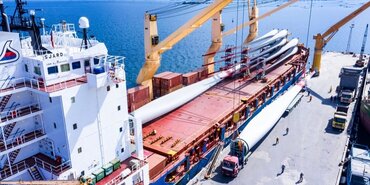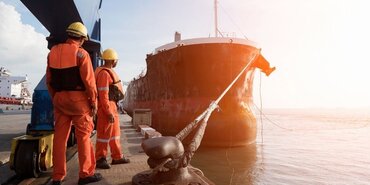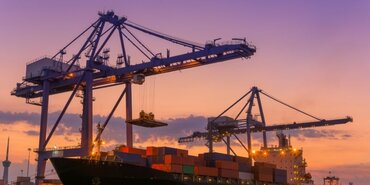TT Talk - Due diligence to increase safety and security

The importance of implementing robust due diligence procedures, incorporating all aspects of your business, cannot be underestimated as key risk mitigation. If something appears too good to be true, then it probably is.
Whether in the context of dangerous goods, specialist services or less complex tasks there is an inevitability that freight forwarders, haulage companies and other actors in the supply chain, by the very nature of their business, rely on other contractors in order to fulfil their valuable services. Given the global nature of the supply chain, in many instances this involves contracting with unfamiliar business entities, frequently domiciled in other countries.
The world is becoming an ever smaller place, and demands on speed of service and response continue to increase. In many instances, contracts may be formed on a rather informal basis through an exchange of emails or use of trading portals, such as freight exchanges.
The range of services required to fulfil a contract may vary widely from warehousing, haulage, or consultancy or related functions, such as procurement and maintenance, through to local agency services where international movements are concerned.
Rigour pays
Regardless of the services being tendered and whether contracting with a supplier on the other side of the world or in the same city, it is fundamental to know who you are contracting with, that they are a reputable company, that they are able to represent your interests appropriately and, importantly, that they are a genuine, financially viable entity.
Performance of due diligence in the global supply chain is as important in relation to the individuals or entities for whom services are undertaken. It is a misconception that care only is required in relation to those on whom reliance is placed through the contractual chain.
“It is a misconception that care only is required in relation to those on whom reliance is placed through the contractual chain”
Winning and retaining business present plenty of commercial challenges. New opportunities may be subject to prescriptive tender processes, while retention necessitates careful management of performance criteria and the broader commercial relationship.
There are a number of risk factors to be considered in relation to due diligence regardless of the actor in the supply chain. Steps need to be taken to be satisfied that any counter-party is competent to fulfil the necessary obligations, including those concerning safety and security. Commercially it will be important to ensure timely payment, but also to understand the trading practices and applicable business culture. Equally, appreciate the nature and scope of incorporated contractual terms. It is also important to take account of international and national regulations relating to sanctions, financial crime etc.
Don’t be hurried
The potential risks and exposures are generally heightened when actors are subjected to time restrictions and where one off business transactions are in contemplation. Whether an urgent shipment for an unknown new customer or the need to sub-contract haulage to meet a tight delivery deadline, these are often the circumstances which give rise to entities deviating from their standard operating procedures to fulfil a business need. Where decisions are made to deviate from standard procedure, your business is at the greatest risk.
Where due diligence activities are concerned the internet can be considered a great enabler, providing expedient, remote access to many key metrics. Businesses however should be mindful that criminal organisations are adept at creating fraudulent documents (including web sites) with the intention to deceive. Always think about what is presented and seek to cross-check information from trusted sources. Wherever possible, seek to obtain original documents, conduct pre-contract negotiations over known landline phone numbers and verify email addresses. Thorough checks frequently pay dividends.
This month TT Club publishes the latest topic in their StopLoss series focused on the importance of due diligence in mitigating contracting risks, particularly connected to safety and security.
The StopLoss addresses two primary fields of risk;
- Issues of concern in providing services to a customer. More obvious items of concern in this context may be credit limits, being duly paid for the services you provide and sufficient incorporation of your standard trading conditions. The briefing also highlights other issues, such as those that may compromise safety, the importance of carrying out effective identity checks, the value of cargo insurance, and the pitfalls of differing business practices, providing in each case points to be considered.
- Protecting your interests when procuring services from other contractors. The risks in this context are markedly different and have the potential to expose your business to significant financial losses. Theft of cargo remains a primary concern arising from TT Club’s claims experience – what can be done to ensure the company is legitimate or that there is sufficient insurance in place? The briefing additionally addresses practical considerations around competence training, independent accreditations and physical checks.
This latest StopLoss focuses on the processes that can be considered by all supply chain stakeholders to evaluate and manage counter-party relationships in ways that protect their business interests and mitigate the associated risk exposures.
We hope that you have found the above interesting. If you would like further information, or have any comments, please email us, or take this opportunity to forward to any colleagues who you may feel would be interested.
We look forward to hearing from you.
Peregrine Storrs-Fox
Risk Management Director, TT Club
- Author
- Staff Author
- Date
- 20/01/2020





